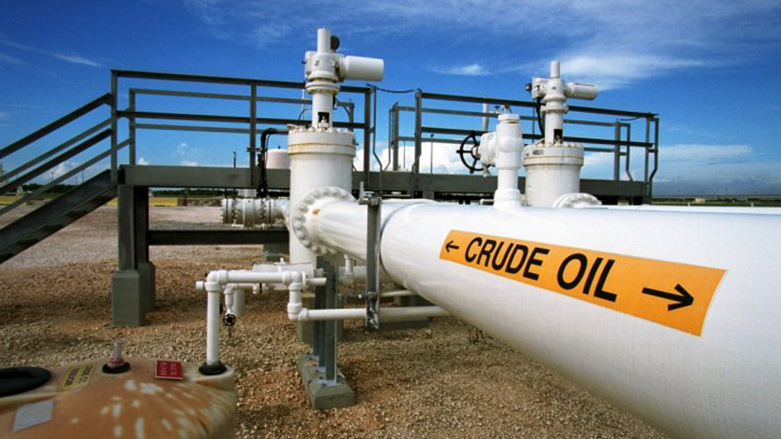US pushing Baghdad to export Kirkuk oil to Turkey

WASHINGTON DC (Kurdistan 24) – Deputy Assistant Secretary of State for Iraq and Iran, Andrew Peek, explained on Wednesday that the US was strongly urging the Iraqi government to resume the export of oil from Kirkuk to Turkey.
Those exports were cut off last year after Iraqi forces, in a military operation engineered by Qasim Soleimani, head of the Quds Forces of Iran’s Islamic Revolutionary Guard Corps, attacked Kurdish forces in Kirkuk, seizing the city and its nearby oil fields.
The Kurdistan Regional Government (KRG) had been exporting 300,000 barrels of oil per day, north to Turkey, through the Ceyhan pipeline. After the assault on Kirkuk, Baghdad ended those exports and began trucking a fraction of that oil (30,000 barrels per day) to Iran.
Last week, Iraq stopped even those limited exports, just before the renewed US sanctions on Iran began.
Thus, as Peek affirmed, it “just makes sense” for Iraq to export the Kirkuk oil to Turkey. “It’s good for Baghdad; it’s good for Erbil.”
“This is something we’re committed to,” Peek added, explaining that the issue had been a major topic of discussion, “among two or three others,” when Deputy Secretary of State, John Sullivan, visited Baghdad and Erbil some four weeks ago.
Peek was a member of that delegation, and he will be returning to the region next week, he told an audience at The Arab Gulf States Institute in Washington DC.
When Sullivan last visited Baghdad and Erbil, then-Iraqi Prime Minister Haider al-Abadi concluded an understanding with the KRG to resume the export of Kirkuk oil to Turkey, through the pipeline which passes through the Kurdistan Region.
However, it was left to the incoming Prime Minister, Adil Abdul-Mahdi, who took office October 25, and Iraq’s Oil Minister, to give final approval to the agreement.
Finishing that business will, presumably, be a major objective of Peek’s forthcoming visit, although he declined to predict success, describing himself as pessimistic by nature.
Answering a question from Kurdistan 24, Peek stressed the importance of “good cooperation” between the Peshmerga and the Iraqi Security Forces, affirming that we will use “our offices to help ensure that the coordination” between the two “is very, very tight.”
Peek also provided further clarification of the waiver that Iraq has received on Iranian sanctions.
It is for 45 days only, and it is for “electricity payments, because of the conditions in Iraq’s south, in Basra,” Peek said.
“The reality right now is that Iraq has to import some electricity and gas from Iran to meet” its needs for “domestic power generation—about 1200 megawatts—which it can’t produce on its own.”
The waiver, Peek continued, is based “on the condition that Iraq demonstrate a pathway to energy independence.” No details, however, have emerged, at least publicly, as to how Iraq plans to achieve that goal.
Although Peek emphasized the advantages to both Baghdad and Erbil in resuming the export of Kirkuk oil to Turkey, and how it would obviously help to reduce Turkey’s imports of Iranian oil.
Turkey was one of eight countries granted a six-month waiver to import Iranian oil. Nonetheless, on Tuesday, Turkish President Recep Tayyip Erdogan strongly criticized the sanctions, denouncing them as “steps aimed at unbalancing the world.”
“We don’t want to live in an imperialist world,” Erdogan said. “We will absolutely not abide by such sanctions.” The following day, when US President Donald Trump was asked to respond to Erdogan’s remarks, he declined to do so.
Presumably, this issue will be among the subjects discussed, when Trump and Erdogan meet this weekend in Paris, where they will both be attending ceremonies to mark the 100th anniversary of the end of World War I.
Peek also noted some early successes for the new US sanctions. As Secretary of State Mike Pompeo has said, the US has already managed to cut Iran’s oil exports by one million barrels a day.
“We see that it is increasingly hard for Iran to pay its proxies” in the region, Peek stated, as it doesn’t have access to the same amount of hard currency it enjoyed earlier.
“That translates into how well, at least in the medium run, it can project power,” he explained. After all, “people need to get paid.”
Editing by Nadia Riva
